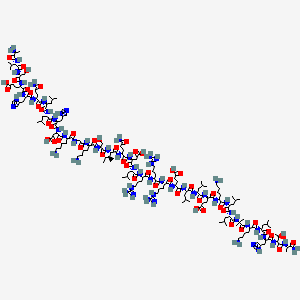
The investigational drug abaloparatide-SC (subcutaneous) may help increase bone mineral density in postmenopausal women and reduce their risk of fracture, new industry-sponsored research suggests. The results of the subgroup analysis within the ACTIVE clinical trial will be presented Friday, April 1, at ENDO 2016, the annual meeting of the Endocrine Society in Boston.
"Abaloparatide-SC increased bone mineral density and reduced the risk of vertebral and nonvertebral fractures consistently in postmenopausal women with osteoporosis regardless of their baseline patient characteristics, including age, bone mineral density, and whether or not they had prior fractures," said lead study author Felicia Cosman, MD, endocrinologist and osteoporosis specialist at Helen Hayes Hospital in West Haverstraw, New York, and professor of clinical medicine at Columbia University in New York City.
"If approved by the Food and Drug Administration (FDA), abaloparatide-SC may have the potential to reduce the risk of fractures in postmenopausal women with osteoporosis across a broad range of patient characteristics," said Cosman, who is also a consultant to Radius Health, Inc., in Waltham, Massachusetts.
The researchers investigated patients enrolled in the randomized, double-blind, multinational phase 3 ACTIVE trial to evaluate the efficacy and safety of 80 micrograms of abaloparatide-SC in preventing fractures in otherwise healthy, ambulatory, postmenopausal women with osteoporosis. Overall, 2,463 patient between 49 and 86 years of age were randomized to take one of three medications for 18 months: 80 micrograms of abaloparatide-SC, 20 micrograms of subcutaneous teriparatide (an FDA-approved prescription drug known to increase bone density and strength), or placebo.


No comments:
Post a Comment